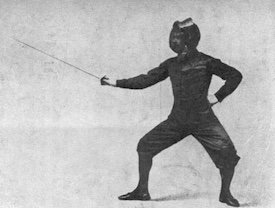Quote:
1. I agree that some SACDs are recorded with more care than other formats. But that's no reason to waste 4x the bandwidth. The obvious solution is to not over-compress at all, then use regular CDs.
2. You also asked:
> "You just need all the data." How do you know you have all the data?
I already answered that 5 times now. Null tests. Enough already. Now back to the present:
3. > Here's a story you may find interesting and which you can hear for yourself
That's old news, and has been debunked many times. That Michael Fremer and the others do not understand just shows that they in fact know less than me about audio. Here's the scoop on that Neve / Emerick story:
I'm sure that console channel sounded different, but not because Rupert Neve or Geoff Emerick were hearing 50 KHz! When a circuit oscillates it creates hiss and "spitty" sounds, and distortion in the audible band. So obviously that's what they heard, not the actual 50 KHz frequency. And what studio loudspeakers reproduce 50 KHz anyway? None. I don't care how many famous acts someone recorded. It doesn't mean they understand the science. In this case clearly they do not.
--Ethan
Yes
1. Go back to CD?
Never. SACD is so much better on so many different levels. Setting aside the controversy over whether you can really hear the higher resolution, SACD makes so much more possible than CDs do. SACD can give you both stereo and multichannel versions of the music (for those who like surround sound). Although it's not often the case because of the inclusion of the multichannel track, theoretically I can
at last get a whole act of an opera without having to change disc midstream. Heck, I can get an
entire opera on a single disc. SACDs can fit up to four albums on one layer, and hybrid SACDs have
two layers! My SACDs have information about the recording that I can access when I connect my player to a monitor. Wasted bandwidth? Who cares if all the space on any given SACD is used or not? The point is that it's there for when manufacturers want to use it. What's better about CD again? You don't believe in higher resolution? Fine, hybrid SACDs give you a standard CD layer that you can play on any CD player.
2. This "null test" you are referring to sounds like the kind of nulling astronomers employ when they look for supernovae. They take two images of the sky and "null out" what is identical between them so that only the differences between the two images remain. When you take a deep-field imagine of the sky, there is simply too much information for the eye to catch. Nulling allows them to see only the differences -- for instance, if a supernovae has exploded since the earlier image was taken. Is audio nulling similar to this? If so, I would just point out that there are many things that don't show up on these tests. In fact, they have discovered that anti-gravity, i.e. "dark energy" (which is not the same as dark matter) is an inherent property of space but will never show up on any test or analysis. In fact, scientists don't really even know what it is. Of course, when anti-gravity was discovered (Einstein first proposed it; he called it the Cosmological Constant, but later disowned it when he got ridiculed by other scientists), scientists said oh no that's physically
impossible. Anyhow, audio nulling is when you null two signals and see what (if anything) gets left over as a difference between them?
3. In the anecdote as recounted by Craig Street, it was specifically emphasized that Emerick did
not hear it, but rather felt it. As for the hiss and spitty sounds, according to Street's version of the story, others were brought in to see if they could detect what Emerick was hearing. They couldn't. They ran some initial tests, but still didn't detect it until some other piece of equipment was brought in. Where does your version of the story come from?
As for your "famous acts" comment, the point is that they are audio
professionals with extensive
experience. But of course I see what's happening. When I reference audio professionals who disagree with you, you will accuse them of not understanding the science, no matter how extensive their experience. When I reference somebody like Norbert Lehmann who clearly understands the science, then you will say he's not telling the truth. At least you should admit that there are knowledgeable people, professionals in the audio industry, who disagree with you. The matter isn't as settled as you make it seem. And this is not like the Repubilcans with their silly claims about scientists being "divided" as regards global warming. It's not just one or two audio professionals who disagree with you, but many of them.
























